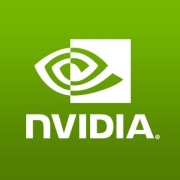Data Center Networking integrates hardware and software, enabling efficient communication within data centers. It optimizes resource use, enhances scalability, and provides robust security.
Enterprises increasingly depend on Data Center Networking to manage complex IT demands. This solution enhances the flow of information, reduces latency, and supports cloud and virtualization initiatives. It aids in transforming traditional data centers into more agile and efficient environments. Scalability and security are key, allowing businesses to grow and adapt to technological changes rapidly.
What are the key features of Data Center Networking?In the banking sector, Data Center Networking supports high-frequency trading with its low-latency capabilities. Healthcare utilizes this to manage massive data from patient records and diagnostic tools, ensuring enhanced data security and compliance with regulations.
This category enhances business agility, enabling swift adaptation to market and technological changes. By providing fast, reliable, and secure network solutions, organizations can focus on growth and innovation.
| Product | Market Share (%) |
|---|---|
| Cisco Catalyst Switches | 18.0% |
| Arista Networks Platform | 15.7% |
| Cisco Nexus | 15.3% |
| Other | 51.0% |






















Organizations and businesses that make it their mission to stay ahead in the world of modern business must be driven by the most current data. The plans that they consider and decisions that they actually enact will necessarily be shaped by their ability to gather, store, retrieve, and process information. It is for this reason that data center networking is a very valuable business practice. Data center networking gives organizations and businesses the power to take the data that is so crucial to their ability to succeed and places it into a secure environment that they can easily access. This practice supplies users with the tools that will maximize their retention and ability to access their data.
Data centers are complex facilities that are responsible for the storage and processing of a company or organization’s critical data. It will often be made up of many different networking devices, which can include such devices as routers, switches, or modems.
Organizations often have a hard time deciding how they want to store their data. They can use a data center or employ a cloud computing service. These two methods differ mainly in the location where the data is kept. Data centers store data in a physical location on physical servers. Cloud computing services store data on cloud servers that can be accessed from anywhere through the internet. Cloud computing services tend to be more easily scaled up than data centers.
Data center networking solutions are a class of solutions that enable users to connect various data center components into a single unified network. Part of what this means is that they help companies manage the flow of data between the data center and other portions of the information technology infrastructure.
Features you should look for in data center networking solution include:
Companies can enjoy the following benefits if they choose to employ data center networking solutions:
Software-Defined Networking (SDN) in Data Centers provides enhanced flexibility, efficiency, and automation. By abstracting the network control plane, SDN allows you to dynamically adjust network configurations to meet the changing demands of modern applications. This results in improved bandwidth management, reduced operational costs, and faster deployment times. It also enhances security through micro-segmentation, allowing you to isolate workloads and protect against threats.
How can Network Function Virtualization improve Data Center operations?Network Function Virtualization (NFV) transforms how network services are delivered in Data Centers by decoupling network functions from physical hardware. This enables you to deploy network services as software on any standardized hardware, reducing costs and increasing scalability. NFV simplifies the management and deployment of services like firewalls, routers, and load balancers. It also enhances flexibility, allowing you to rapidly adapt to network demands and innovate new services.
What role does cloud networking play in Data Center strategies?Cloud networking is integral to modern Data Center strategies, offering seamless connectivity through hybrid and multi-cloud environments. It enhances agility by enabling you to scale resources based on demand without heavy reliance on physical infrastructure. Cloud networking supports distributed applications and workloads, improving disaster recovery and data access. Embracing cloud networking also reduces capital expenditure and accelerates time-to-market for new services.
What are best practices for enhancing Data Center network security?Enhancing Data Center network security involves a multifaceted approach including implementing zero trust models, micro-segmentation, and robust encryption protocols. Regularly updating software and hardware to patch vulnerabilities is crucial. Network monitoring tools are essential for real-time threat detection and response. Adopting a zero trust architecture ensures that no device or user is trusted by default, minimizing attack surfaces and safeguarding sensitive data.
Why is automation critical in modern Data Center Networking?Automation is critical in modern Data Center Networking as it streamlines operations, reduces human error, and optimizes resource utilization. By automating repetitive tasks like configuration management and monitoring, you can significantly increase efficiency and minimize downtime. Automation supports rapid deployment of network changes, which is crucial for adapting to shifting business demands. It also aids in maintaining consistent security policies across the network.